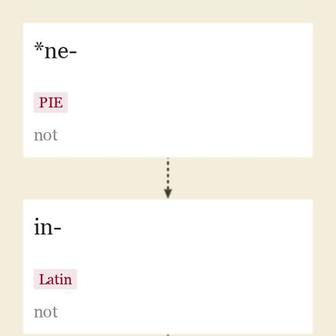illocution (n.)
1955年,源自于 in-(1)“不,相反的”和 locution 的合并形式。
最早记录年份: 1955
illocution 的相关词汇
in- (1)

这个词缀的意思是“不,相反,没有”(也可以是通过与后面的辅音音节化的 -n- 的同化而来的 im-, il-, ir-,这种趋势始于后期拉丁语),源自拉丁语 in- “不”,与希腊语 an-,古英语 un- 同源,均来自 PIE 词根 *ne- “不”。
在古法语和中古英语中,通常使用 en-,但大多数这些形式在现代英语中已经不再使用,只有极少数(例如 enemy)不再被视为否定的。在英语中的经验法则是,对于明显的拉丁语元素使用 in-,对于本土或本土化的元素使用 un-。
locution (n.)
"言语风格",15世纪早期,源自拉丁语 locutionem(主格 locutio)"说话,言论; 说话方式",是 loqui 的动名词,来自 PIE 词根 *tolkw- "说话"。相关词汇: Locutionary。
illocutionary (adj.)
1955年,由 illocution 和 -ary 组成。